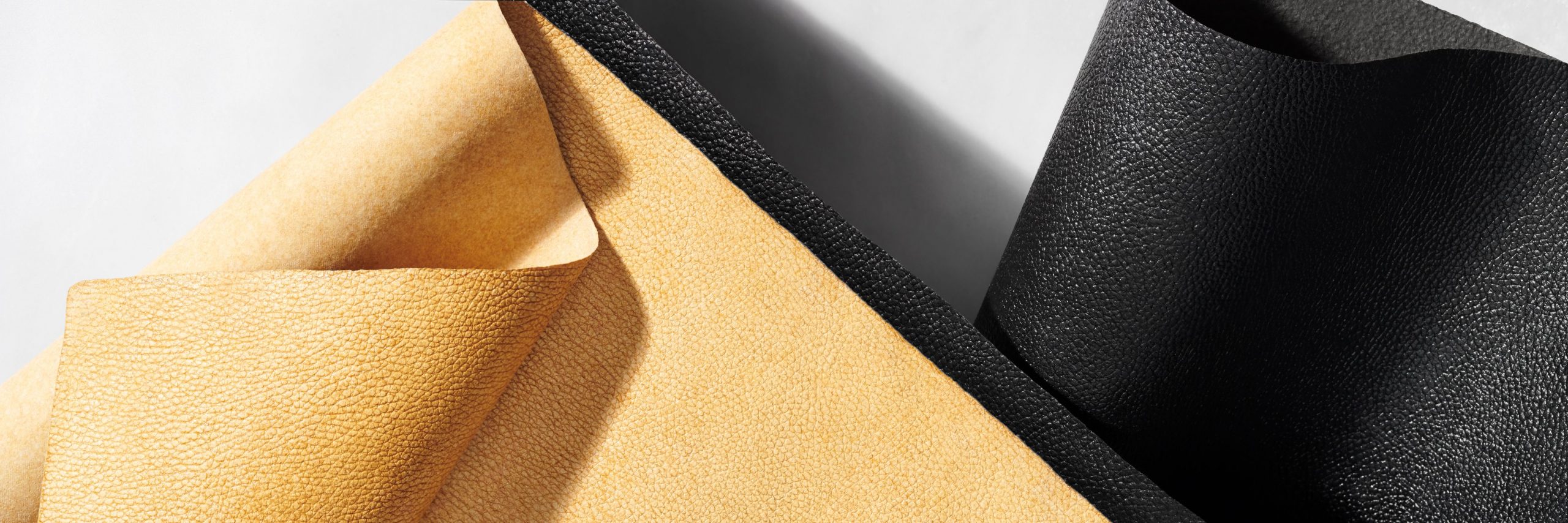Revolution in fashion
Mylo, is a leather alternative for a revolution in fashion. What if the future of fashion would be wearing textile alternatives to nowadays common ones? What are the revolutions in fashion sustainability?
Many companies are experiencing a real revolution in fashion for leather alternatives, from pineapples, to banana, to cactus leaves. As a matter of fact, there are futuristic and visionary companies that are betting on Nature as the major player for our future garments. Mylo, is the first lab-made material, and it is a leather alternative for a revolution in fashion. The future of material companies is to find less harmful materials as well as real alternatives to the already existing ones.
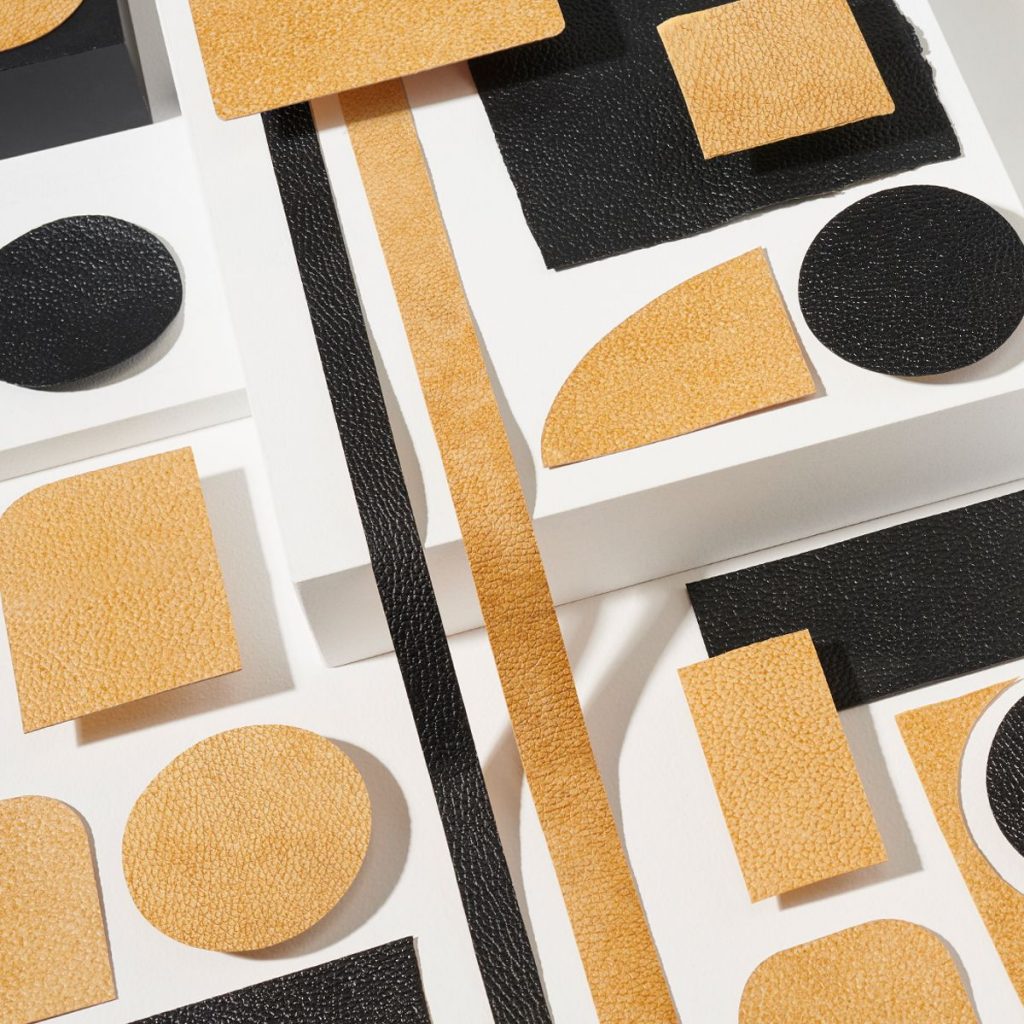
Let’s meet Mylo revolution in fashion
Mylo is the product of Mycelium, the vegetative part of a fungus or fungus-like bacterial colony (Mushrooms are the fruit of mycelium), consisting of a mass of branching, forming a sort of net underneath our soil and it is infinitely renewable. In fact, it threads through soil, plant bodies, and along river beds to break down organic matter and provide nutrients to plants and trees. Furthermore, it brings sustenance to all living species and is the literal world wide web.
It is from this awareness that Bolt Threads, a material solution company founded in California in 2009 by visionary scientists and engineers, developed Mylo. In 2018, by engineering mycelium into a material, they came out with a 50-85% bio-based material. They deifine it as leather alternative, either to animal and synthetic one. From the tactile point of view it is soft and supple, suitable for bags, phone covers, shoes, accessories, but also apparel. Being a material that grows in lab, they can control the final material’s properties including thickness and shape. Furthermore, considering the dyeing process, Mylo has no hazardous substances such as chromium which is used in leather production and harmful for the planet.
Mylo exclusive consortium partners
Launched in 2018, Mylo is still a young material and not easily available on the market. Few brands are ready to take up the challenge and implement it in their collections. However, Mylo is still part of concepts and capsule collections, and not yet sellable.
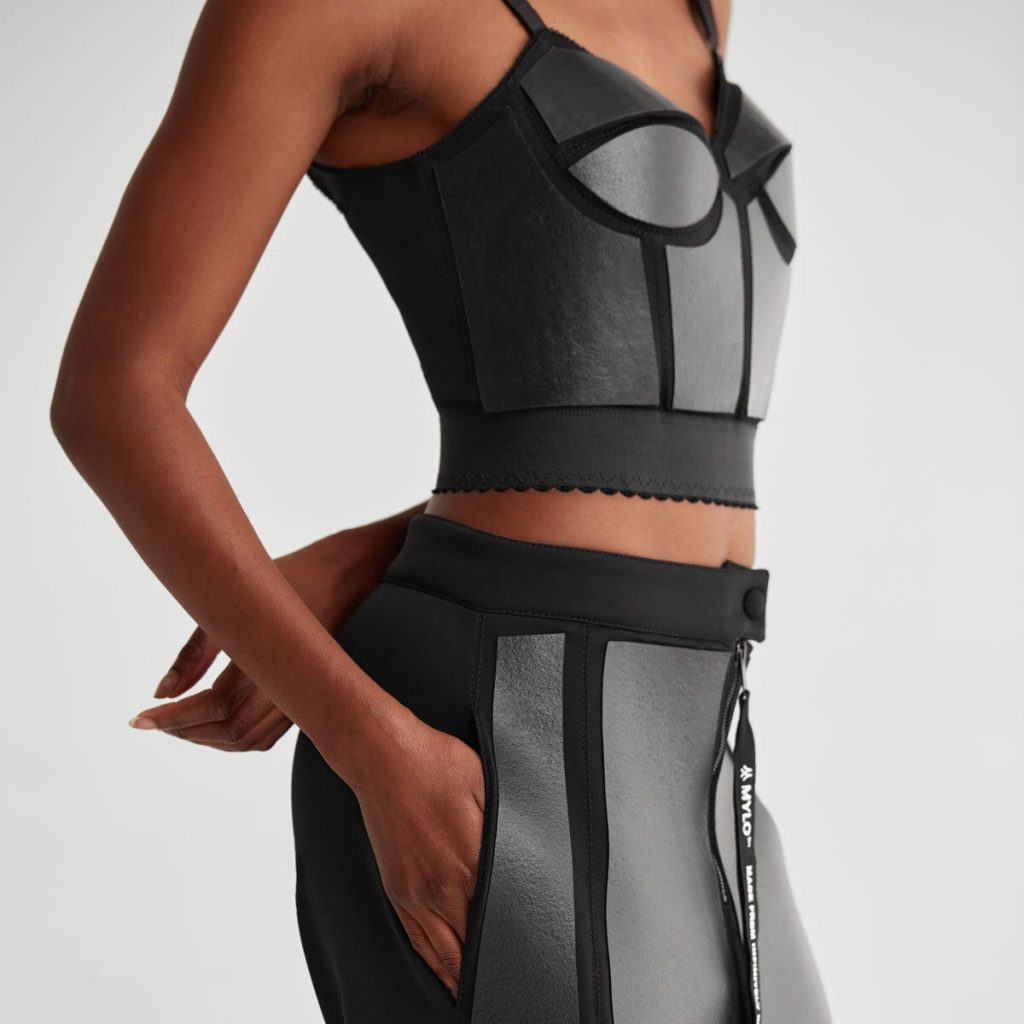
Stella McCartney, a visionary whom Vogue once called “fashion’s conscience”, redefines luxury by never using animal leather, skin, fur, or feathers in her garments and accessories. She used Mylo in March 2021 collection. The bustier top and utilitarian trousers were handcrafted from panels of Mylo. The latter are laid on recycled nylon scuba and made at the brand’s atelier in London.
Adidas, in April 2021 launched the Stan Smith Mylo™. The shoes are all made with Mylo except the midsole which is in natural rubber. Adidas commitment to sustainability is a long-run journey and they always look for innovative partnerships and material exploration.
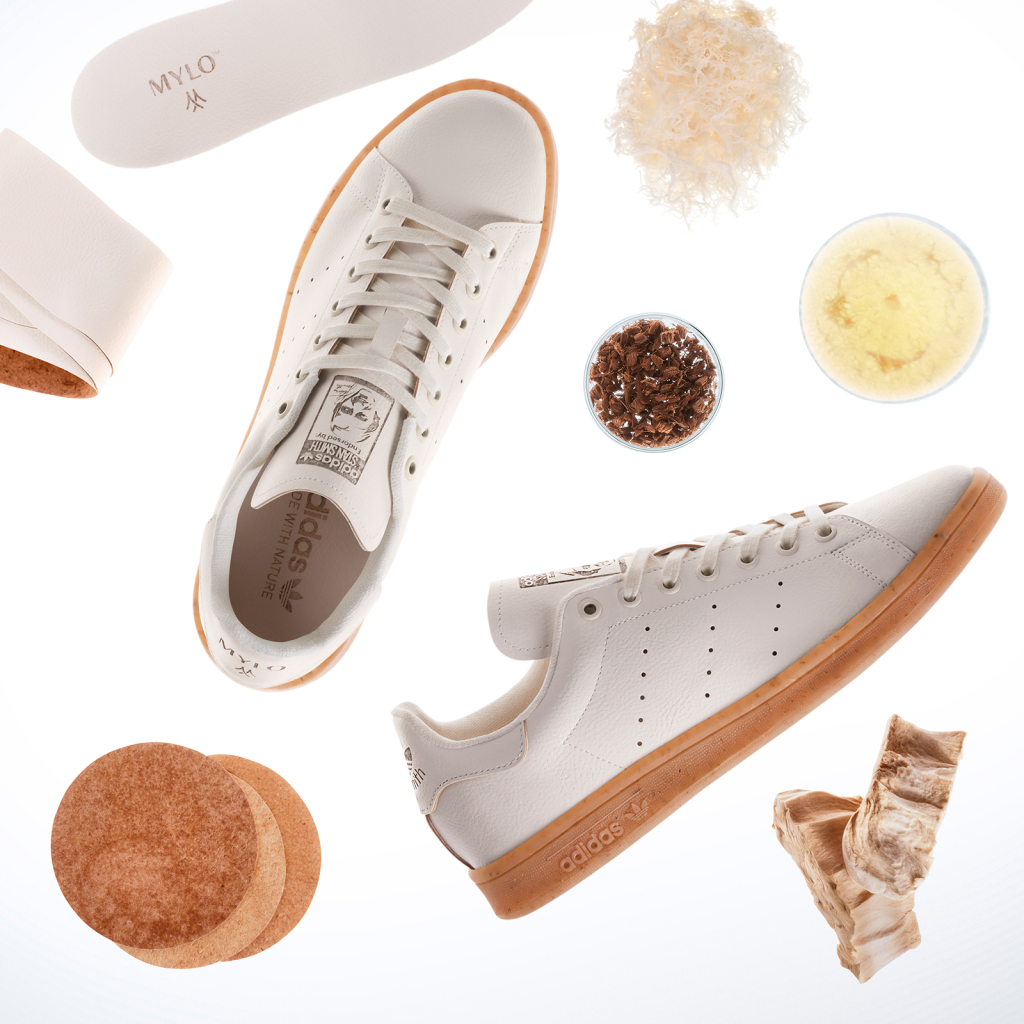
Lululemoon, the brand to know for Yoga lovers, launched the Mylo yoga accessory collection. They leveraged the high-quality feel and utility of the mycelium material. The capsule collection includes the Meditation and Yoga Mat Bag and Barrel Duffel Bag. Furthermore, the design principle aims to provide guests with an elevated sensory experience and product performance. Mylo is part of lululemon’s commitment to using at least 75% sustainable materials in their products by 2025.
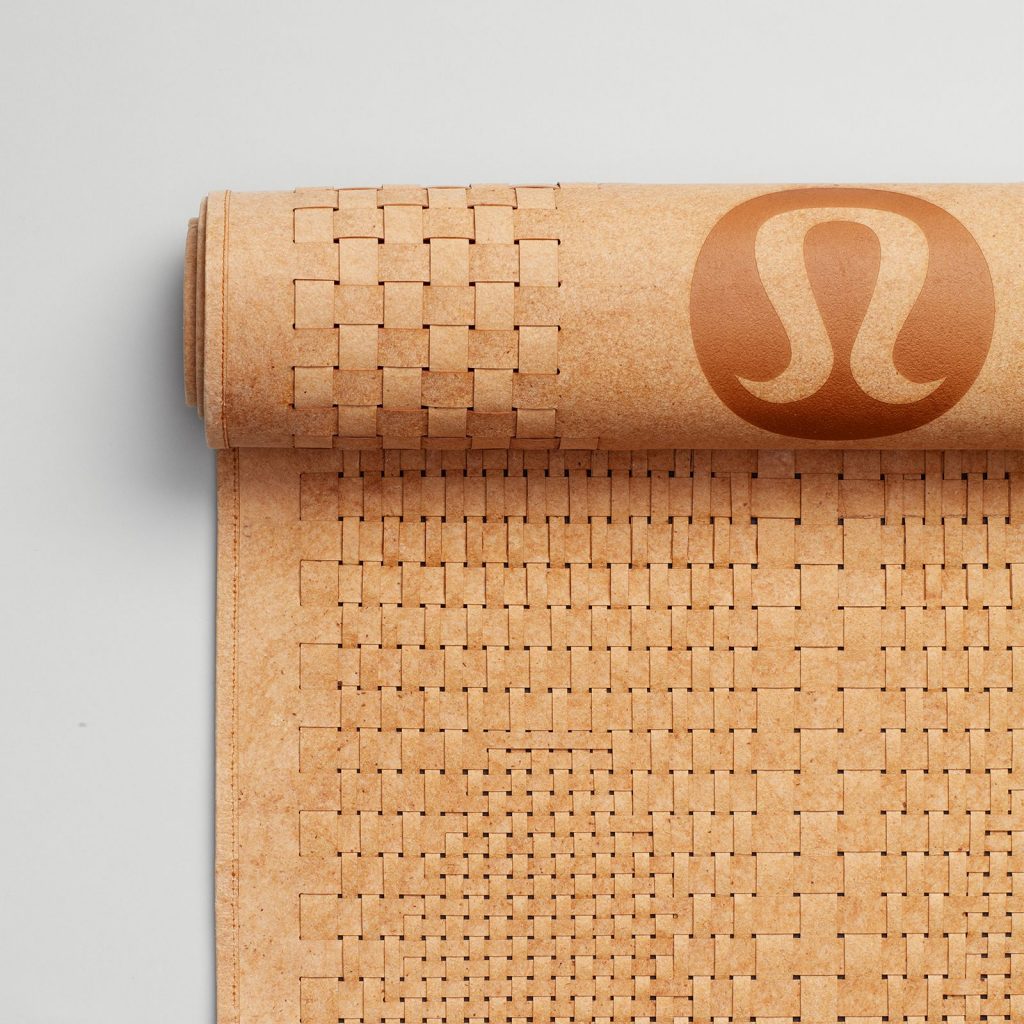
Luxury meets leather alternatives
Mylo is not the only player in the mycelium leather alternative market. In fact, another US startup, MycoWorks, is working on an exclusive collaboration with Hermès. Luxury is exploring the leather alternative world. According to experts, leather alternatives could account for at least 10 percent of the luxury goods industry over the next two decades.
Hermès and MycoWorks worked for three years on Sylvana, a new generation of exclusive materials, made out of Fine Mycelium. It is produced in the MycoWorks facility, then tanned and finished in France by the Hermès tanners. This is to further refine its strength and durability, matching Hermès quality standards.
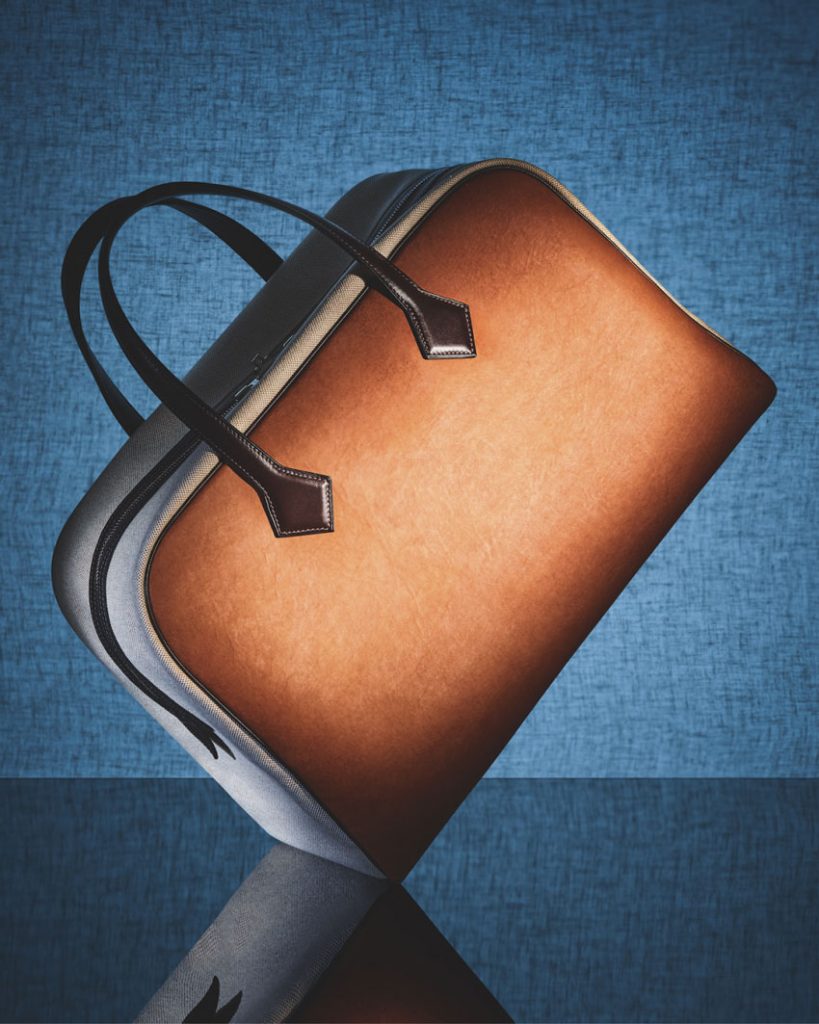
Mylo, a real leather alternative?
Despite of the new reasearch and development, it is too early to have an independent study on the environmental footprint of the Mylo material. Leather has been marketed for decades and the Mylo material is still in small-scale production. The longevity of this material will be a key point: leather is one of the most long-lived materials. On the contrary Mylo and the mycelium leather alternatives are not biodegradable, nor recyclable as many other alternative materials to leather. Plus, they are not 100% plastic free. However, the technology of these innovations is still at an early stage. In 2022 Bolt Threads will release a full Life Cycle Assessment to provide a deeper view into Mylo’s impact. Hopefully it will be more and more focused on circular economy.


